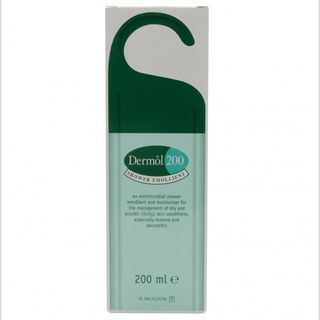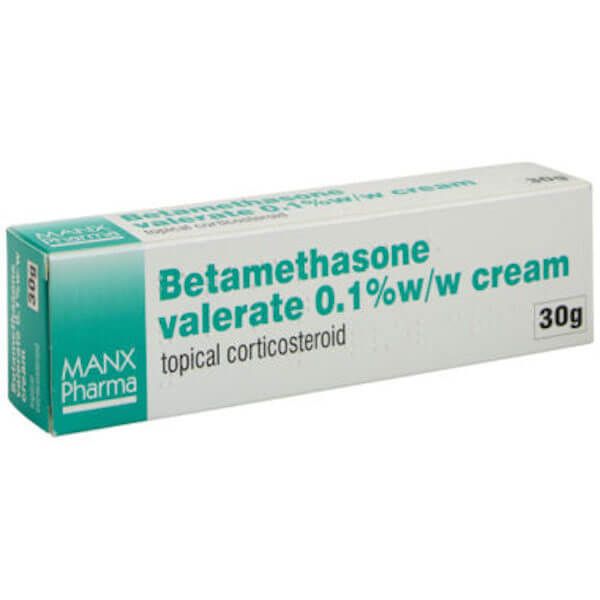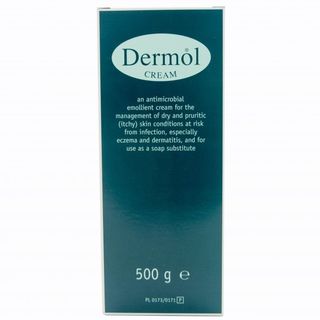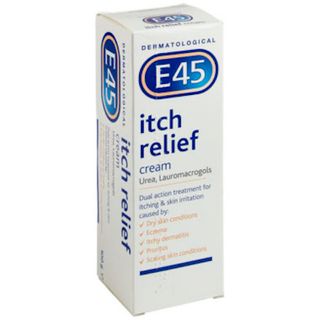

Betamethasone 0.1% Cream & Ointment
- Free standard delivery on orders over £40Spend £40.00 more for free delivery
- Fast, discreet delivery
Delivered in secure, plain packaging on fully tracked delivery from just £2.95
- 100% UK-based pharmacy
Our team of doctors and pharmacists, and our support staff, are all UK-based.
- Free advice and support
Have a question? Telephone support is always free; Monday - Friday, 9am - 5pm.
- We're rated 4.9 out of 5
Based on over 24,000 reviews collected on Google and Reviews.io.
We maintain the highest possible regulation for a UK online pharmacy, ensuring your experience is safe, and confidential.
- Betamethasone 0.1% Ointment3
- Betamethasone 0.1% Cream (30g)3
- Betamethasone 0.1% Cream (100g)1
This treatment requires an online consultation for review by our medical team. The decision to supply the specific treatment and quantity requested will be based on whether our medical team are satisfied that it will be safe, appropriate, and effective.
This is a generic medicine and manufacturer of the treatment supplied may vary from the treatment image above, depending on availability. Please contact us once you've placed your order if you require a specific brand and we will do our best to accommodate your request.
- Type of medicine
- Potent topical corticosteroid
- Works by
- Reduces inflammation of the skin
- Active ingredient
- Betamethasone valerate
- Strength
- 0.1%
- Effective within
- 2 - 3 days
- Pack size
- 30g, 100g
- Manufacturer
- Manx Pharma, Accord
- Generic
- Yes
- Use with alcohol
- No known issues
Betamethasone 0.1% Information
What is Betamethasone 0.1%? What is it used for?
Available as a cream or an ointment, Betamethasone is an effective topical treatment for inflamed skin, making it an excellent option for sufferers of eczema and dermatitis. Named after its key ingredient, an anti-inflammatory corticosteroid called betamethasone valerate, Betamethasone is also sold as Betnovate.
Applied as directed, this topical corticosteroid treatment powerfully reduces skin inflammation, diminishing the symptoms of skin conditions such as atopic eczema and even psoriasis. Used in addition to your usual moisturiser, it can keep your skin condition under control.
How does Betamethasone work?
Skin inflammation has many possible causes, but it usually stems from exposure to a skin irritant or an allergic reaction. When such an issue arises, it prompts the body’s regulatory systems to widen blood vessels in the affected area, with the result being inflammation.
Betamethasone directly targets skin swelling, greatly reducing discomfort. More specifically, betamethasone valerate cream/ointment functions by blocking the release of chemicals that induce inflammation, allowing skin irritation to subside and broken skin to heal.
Betamethasone cream versus Betamethasone ointment
The active ingredient in Betamethasone is available in various preparations. If your skin is moist or weeping, you’ll likely be prescribed Betamethasone cream. If you’re suffering from dry skin, however, you’ll probably be offered Betamethasone ointment instead: the thicker and greasy ointment is far better for locking in moisture.
Aside from those two common versions, you can also use Betamethasone as a lotion: this is better for treating a large area. And if you suffer from psoriasis or eczema on your scalp, you can even get Betamethasone as a dedicated scalp treatment to avoid affecting hair growth.
Should you buy Betamethasone?
You’ve found this page because you’re interested in buying Betamethasone — so it is the right treatment for you? Well, the advantages are clear. It’s a proven and broadly-safe treatment for atopic eczema, clearing up itchy bumpy skin using the same active ingredient as Betnovate cream, its more expensive branded equivalent.
Since Betamethasone cream/ointment is a strong corticosteroid, though, it must be used carefully. Skin thinning is a risk if you apply too much of it, so it must be kept to a thin layer and only used at the advised intervals. If you suffer from extremely-mild acne, betamethasone valerate 0.1% is a more potent treatment than you need.
If you’re unsure, don’t worry: we offer free consultations, so we can ensure you’re getting the most appropriate treatment for your skin condition before delivering it to your door through our online pharmacy service.
Alternatives to Betamethasone
Betamethasone’s versatility means it can be combined with other beneficial ingredients to create treatments with antibacterial, antibiotic, and even antifungal properties (consider medications such as Fucibet). This means that there’s a good chance your skin problem can be treated with something using betamethasone valerate — but what if it can’t?
Thankfully, we have a broad range of treatments for eczema, including many other effective topical treatments and oral tablets for tackling relevant allergies. It may even be sufficient for you to use a reliable moisturiser and emollient, switch your bath/shower gels, or start wearing gloves to discourage you from scratching while your skin heals.
The important thing is that we review the symptoms of your skin problems and use them to determine the best way to proceed. We’ll only suggest that you use Betamethasone if we’re absolutely confident that it’s the right choice in your situation.
Betamethasone 0.1% directions
You should thoroughly wash and dry your hands before applying Betamethasone, as you would for all topical creams, ointments, or lotions (even those not designed to treat skin conditions). You should also clean and dry the affected area before beginning, though be mindful to avoid drying it excessively or causing further irritation: pat it dry with a clean towel or cloth.
When you apply the Betamethasone, you should use just enough to cover the required area. Anything more than this is unnecessary and potentially unsafe. You can use this treatment up to three times per day, though that’s only if your case is particularly serious.
Once you’ve applied the cream or ointment, you must wash your hands again (unless the treated skin is on your hand or hands, in which case you should wash around that skin as best you can). Be sure not to get any in your eyes, as this can worsen — or even cause — glaucoma. If possible (or unless instructed otherwise), keep the treated area uncovered.
If you haven’t noticed any improvement to your condition after two weeks, consult your doctor. You may need to consider another treatment, or perhaps just give it more time.
Betamethasone ingredients
The active ingredient in Betamethasone cream is betamethasone valerate, with 1mg of betamethasone valerate per 1g of cream.
The other ingredients are as follows: macrogol cetostearyl ether 20, cetostearyl alcohol, chlorocresol, sodium dihydrogen phosphate dihydrate, phosphoric acid, sodium hydroxide, liquid paraffin, white soft paraffin, and purified water.
Betamethasone ointment has the same active ingredient, but otherwise contains only the following ingredients: liquid paraffin and white soft paraffin.
Betamethasone 0.1% side effects
Side effects are rare when using a betamethasone valerate cream or ointment, but they can still occur. It’s most common by far for users to have temporarily-worsened symptoms, with the treated skin sending burning sensations and increased itchiness. It’s usually safe to continue.
Very occasionally, though, ingredients in Betamethasone (particularly propylene glycol or chlorocresol) can produce allergic reactions, while others can cause negative skin reactions such as contact dermatitis (cetostearyl alcohol, for instance). If you believe that your local skin reactions are anything more than a temporary setback, stop using this treatment and consult your doctor immediately. Allergic reactions in particular must be taken seriously.
Betamethasone warnings
As is the case for all prescribed medication, Betamethasone isn’t suitable for use in all circumstances. You mustn’t use Betamethasone cream or ointment if any of the following statements is true:
- You’re allergic to one of the listed ingredients.
- You’re treating a child under 1 year old.
- You’re trying to heal acne, rosacea, perioral dermatitis, or a skin infection.
- You’re suffering from itchiness but not inflammation.
- You’re treating the skin around your anus or genitals (barring doctor approval).
While you can use (or continue to use) Betamethasone cream or ointment if one of the following statements is true, you must be particularly careful:
- Your first application prompts a mild allergic reaction (e.g. itchy skin and redness).
- You’re treating a leg ulcer or your thin facial skin.
- You get some cream or ointment in your eyes (rinse them immediately).
- You suffer from psoriasis (have your doctor review your progress).
Due to the potential for negative drug interactions, it’s essential that you tell your doctor about any other medications you’re taking (or intend to take) before starting treatment.
Always review the Patient Information Leaflet (PIL)
Medical science is ever-improving, and the composition and impact of a given treatment can change accordingly. Any such changes to Betamethasone cream or ointment will be indicated in the Patient Information Leaflet (PIL) provided in the packaging. In addition to considering what we’ve covered on this page, you should take the time to review the PIL before you begin your course of treatment. This will ensure that you don’t miss anything.
Betamethasone 0.1% Cream & Ointment reviews
Related Treatments
 Dermol 200 Shower Emollient£10.7826 reviews
Dermol 200 Shower Emollient£10.7826 reviews
Dermol Cream
Dermol Cream£134.4036 reviews- Out Of Stock

E45 Itch Relief Cream
E45 Itch Relief Cream24 reviews
Visit our Betamethasone 0.1% Cream & Ointment page for treatments, advice and FAQs.
Ordering as easy as 1, 2, 3
1. Find the ideal treatment
We can provide over 1099 leading medicines to treat over 94 conditions.
2. Get a free consultation
Our qualified healthcare professionals will assess your condition and needs.
3. Enjoy speedy delivery
And when the time comes to re-order, it'll only take a couple of clicks.